In this week's case discussion, submitted by A/Prof John Pyne, three patients present with...
.jpg?height=200&name=HCE%20HubSpot%20blog%20images%20600x350%20(55).jpg)
Learn how to manage common skin, hair, and nail conditions in the primary care setting.
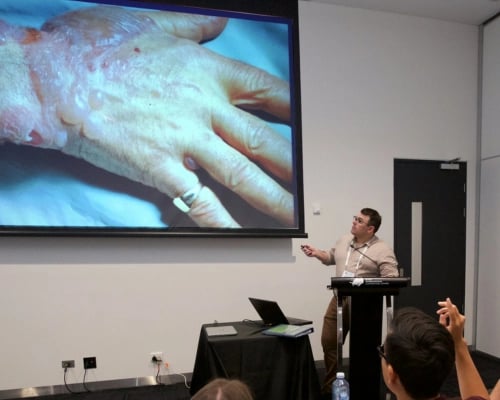
Presented by noted dermatologists, this GP dermatology course will provide you with knowledge about the modes of presentation, relevant investigations, and management of all common skin conditions - from acne, rosacea, eczema, and psoriasis through to drug rashes, hair loss, and common cosmetic complaints.
- Gain comprehensive knowledge on the diagnosis of various dermatological conditions.
- Learn to choose appropriate treatment options.
- This course is for medical doctors, International Medical Graduates, registered nurses, dermal therapists, pharmacists, and degree-qualified health professionals.
- CPD-accredited and university-assured.
Fulfils 50 hrs for medical professionals in Australia*
100% online
$2095
Special rates available
81.5 hours
Self-paced
- Meet patient demand as 11.5 per cent of GP consults are for skin concerns.
- Move beyond six-minute medicine by expanding the service range in your practice.
- Manage more skin conditions in-house and reduce referrals.
- Diversify your practice and improve patient outcomes through timely diagnosis of dermatological conditions.
- Gain comprehensive knowledge on the diagnosis of various dermatological conditions in the early presentation stage.
- Learn how to choose appropriate treatments for skin, hair and nail problems that commonly present in the primary care setting, with integrable knowledge that is immediately applicable in general practice.
Get unlimited access to all course content, additional learning materials, ongoing post-course support, and more.
This general dermatology course focuses on common benign lesions, pigmentary conditions and cutaneous infections. The first section focuses on common benign conditions including epidermal, melanocytic, vascular lesions, soft tissue and neural lesions, cysts, chondrodermatitis nodularis helicis and sebaceous hyperplasia. The module then focuses on pigmentary conditions. It outlines the diagnosis, investigations and management of pityriasis alba, pityriasis versicolor, idiopathic guttate hypomelanosis, vitiligo and melasma. The third section discusses cutaneous infections including staphylococcal and streptococcal, malassezia and corynebacterium, and then viral warts and scabies. Each category is discussed in detail and clinical images are used to identify differential diagnosis and management of these lesions.
This module focuses on facial rashes, systemic diseases and fungal infections. The first section focuses on identifying the different types and causes of facial rashes, including seborrhea, rosacea, atopic dermatitis and contact dermatitis. It also explains the four subtypes of rosacea and outlines treatment options. The next topic focuses on detecting cutaneous clues for the diagnosis of systemic diseases including recognizing skin findings to distinguish between different types of neurocutaneous diseases. The eight most common systemic diseases are discussed including dermatomyositis, lupus, sarcoidosis, scleroderma, neurofibromatosis, tuberous sclerosis, Cutaneous T-Cell Lymphoma and pyoderma gangrenosum. The module concludes with separating cutaneous fungal infections from other skin diseases and infections. It explains the use of KOH preparation with fungal stain and microscopy to identify fungal infections and when to use oral antifungal medications rather than topical preparations. Clinical images are featured throughout the module.
This module focuses on the papulosquamous disorders of psoriasis, lichen planus and pityriasis rosea. The first section of the module focuses on identifying the different types of psoriasis and their distinguishing features. It also explains the nine categories of psoriasis, steps taken to make a diagnosis and outlines treatment options. The next topic focuses on recognising the different variations of lichen planus and pityriasis rosea. It explains the six Ps and skin variants of lichen planus, including selecting appropriate treatment options. The diagnosis, including when to biopsy, and the management of pityriasis rosea is outlined including treatment options. Clinical images are featured throughout the module.
This module focuses on atopic dermatitis and acne relating to general dermatology. The module begins with an overview of atopic dermatitis and discusses the diagnosis of this condition from infancy to adulthood. It then explains the pathogenesis, complications and contributing factors of this disease. The module also outlines different treatment options, including bleach baths, wet wrap therapy, phototherapy and the use of systemic drugs. The second part of the module focuses on the causes and diagnosis of acne vulgaris. It also outlines tips to treat and help patients with acne. The module concludes with therapeutic recommendations for the treatment of acne. Clinical images and diagrams are used throughout the module to assist with learning.
This general dermatology module focuses on dermatopathology, pruritus and contact dermatitis. The first section of this module focuses on dermatopathology. It outlines when and why to conduct a biopsy, including different biopsy methods and biopsy processing. It describes how to complete a pathology request form by providing essential information, including the site and method of biopsy, descriptive words describing distribution and morphology, and differential diagnosis. An overview of the pathological changes of skin and six tissue reaction patterns of inflammatory cells is discussed. The next section focuses on types of pruritus, including pruriceptive, neuropathic, neurogenic and psychogenic itch. It explains the initial and ongoing management of these conditions. The final section focuses on allergic versus irritant contact dermatitis. It outlines the different types of irritant contact dermatitis, the clinical features, pathology and ways to manage them. The module concludes with describing the clinical features of allergic contact dermatitis on various body parts, when to perform patch testing and management of this condition. Clinical images are featured throughout the module.
This module focuses on nail disorders and hair loss. The first section focuses on nail disorders and discusses the nail apparatus and onychomycosis of the nail, including dermatophytic and non-dermatophytic infections. It explains the predisposing factors and five clinical patterns of onychomycosis, including distal/lateral subungual, the superficial white, the proximal subungual, the endonyx and candidal onychomycosis. The main differential diagnosis, a step-by-step specimen collection, treatment options, preventive measures and complications are discussed in detail. The next section focuses on the dermatologic entities that induce hair loss. It briefly outlines the classifications and presentations of the most common non-cicatricial and cicatricial alopecia. Conditions include androgenetic alopecia, telogen effluvium and alopecia areata. Each category is discussed in detail and clinical images are used to identify differential diagnosis, work-up and management of these conditions.
This module focuses on paediatric topics, follicular disorders and blistering disorders. The first section focuses on paediatric dermatology conditions including cutaneous mastocytosis, acrodermatitis enteropathica, Gianotti-Crosti syndrome, confluent and reticulated papillomatosis, 5th disease or erythema infectiosum, viral exanthems, drug rash, impetigo, infantile acropustulosis, erythema toxicum neonatorum, hand foot and mouth disease, scabies, linear epidermal nevus, nevus sebaceous and infantile hemangiomas. Each category is discussed in detail and clinical images are used to assist with the diagnosis and treatment of these conditions. The second section focuses on hair follicle disorders including superficial folliculitis, keratin disorders and deep folliculitis. The treatment of these conditions is discussed in detail. The last section focuses on a rare blistering disorder called vesicobullous disease that causes vesicles and bullae eruptions on the skin and mucosal surfaces. The five variants of the blistering disorder including clinical images are discussed in detail.
This module focuses on reviewing ten case studies across various general dermatology conditions. Each case is supported by clinical images. History taking, identifying differential diagnosis, examination, investigations and management strategies are discussed in each of these case studies.

Professor of Dermatology and Cutaneous Surgery at the University of Texas, USA
Founder and medical director of the University Health System Skin Clinic in San Antonio, USA
Professor Richard Usatine is the Professor of Dermatology and Cutaneous Surgery at the University of Texas. He is the author of nine books and over 120 papers, founder of the Interactive Dermatology Atlas on the web, and is the most recognised skin cancer presenter in the USA. Since 2000, he has been chosen yearly by his peers to be included in The Best Doctors in America. He is also the national chair of the yearly Skin Course put on by the American Academy of Family Physicians, and is the founder and medical director of the University Health System Skin Clinic in San Antonio.
Richard has been involved in Global Health through his work in Mexico, Guatemala, Panama, Haiti and Ethiopia. In 2000, Richard Usatine was recognised as the national recipient of the Humanism in Medicine Award, by the Association of American Medical Colleges.

Associate Professor Caterina Longo is a board-certified dermatologist specialising in the diagnosis and treatment of skin cancers. Although providing the best care possible for patients remains her primary goal, she also committed to education and clinical research. She is actively involved in clinical research and has published numerous papers on topics related to skin cancer with an emphasis on melanoma, atypical nevi, Spitz/Reed nevi and non-melanoma skin cancer.
Caterina’s research interests are focused on the use of imaging instruments such as dermoscopy and confocal laser microscopy to recognise skin cancer early in its development. She pioneered the use of ex vivo fluorescence confocal microscopy for micrographic Mohs surgery applied for basal cell carcinoma and other visceral tumours. Caterina frequently lectures on these topics both nationally and internationally.

Dr Zoe Apalla was board certified in dermatology in 2008 at the Aristotle University of Thessaloniki, Greece. She was trained in dermatopathology at the St John’s Institute of Dermatology in London in 2010 and obtained her PhD degree at the Aristotle University of Thessaloniki in 2013.
Zoe has worked as a consultant in the First Dermatology Department of the Aristotle University of Thessaloniki since 2010. She oversees the Supportive Oncology Outpatient Clinic and the Skin Cancer Outpatient Clinic, and the department’s dermatopathology laboratory. She also holds General Dermatology and Inflammatory Dermatoses Outpatient Clinics.
Zoe’s main research fields include skin oncology, melanoma and non-melanoma skin cancer, topical treatments, photodynamic therapy and dermatoscopy. She has published more than 100 peer-reviewed scientific articles in international journals and has lectured at many international and national congresses and meetings.

Dr Jonathan B. Karnes is a family medicine physician with special fellowship training in dermatology. He is employed by MDFMR Dermatology Services and is a member of Maine General Medical Center's active staff. He is also a faculty member in the Maine Dartmouth Family Medicine Residency program.
Jonathan’s special interest areas include:

Dermatologist
Dr Christopher Ross is an Adelaide-based Dermatologist who completed a Bachelor of Science in Biomedical Science with Honours at Adelaide University in 2004, before completing his Bachelor of Medicine, Bachelor of Surgery at Flinders University in 2008. Dermatology training was conducted at Women’s and Children’s Hospital, Flinders Medical Centre and Royal Adelaide Hospital; he was awarded Fellowship of the Australasian College of Dermatologists (FACD) in 2016. Dr Ross has published multiple articles in the Australasian Journal of Dermatology and has written and presented several courses in General Dermatology with HealthCert for teaching purposes. Dr Ross has a keen interest in rural dermatology, providing outreach services to Darwin and rural South Australia. He also holds the position of Visiting Medical Specialist at Flinders Medical Centre, providing care and teaching to Dermatology registrars. Dr Ross has an interest in all general dermatology including acne, eczema, psoriasis and hair loss. Dr Ross become a founding member of DermoDirect, which is an online teledermatology service that provides a valuable expert service to rural areas of Australia. He also is a founder of Diagnode, the telehealth platform behind Dermodirect.
$2095
*provided an outcome measurement activity with a minimum of 5 hours is completed.
Bundle two courses and save 5%, or three courses and save 10% upon enrolment.
Talk to us about deferred payment options, registrar scholarships and special rates.
*For Australian residents only: Online course prices are shown exclusive of GST. If you are GST-registered, please enter a valid ABN at checkout to ensure GST is not applied. Otherwise, 10% GST will be added at checkout. View our FAQ for more information.
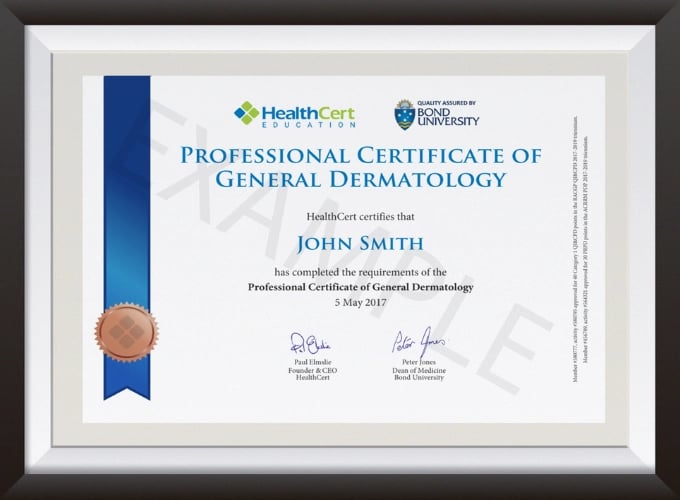

Easy to undertake in your free time with short lectures and reading materials. The course covered a fantastic range of conditions with evidence-based treatment options.
Dr A. Gillie
I have found this course extremely helpful in giving me a safe and structured framework by which to evaluate a variety of dermatological presentations. I especially liked the ease of access to good and comprehensive course material.
Dr M. Tran
A good working knowledge of dermatology builds confidence in any GP. Thank you to all lecturers and HealthCert staff for preparing such an excellent course.
Dr A. Botha
Everything was very relevant and easy to understand. Certainly in a very different league to all the other courses I have attended.
Dr M. Kaur
I wish I had completed this course two years ago. My time in general practice so far has not enhanced my diagnostic or surgical skills and I have been scared about skin checks! I actually feel not only confident but empowered. A fantastic course! Thank you!
Dr A. Mooney
| RACGP Activity Number | ACRRM Activity Number | Activity Title | Education Hours | Performance Hours | Outcome Hours | ||
|---|---|---|---|---|---|---|---|
| 1431400 | 38975 | Dermatology cases | 1431400 | 38975 | 4 | 6 | 0 |
| 1431237 | 38967 | Common benign conditions, pigmentary conditions and cutaneous infections | 1431237 | 38967 | 4.5 | 6 | 0 |
| 1431361 | 38972 | Dermatopathology, pruritus and contact dermatitis | 1431361 | 38972 | 4.5 | 6 | 0 |
| 1431392 | 38974 | Paediatric topics, Follicular disorders and Blistering disorders | 1431392 | 38974 | 4.5 | 6 | 0 |
| 1431379 | 38973 | Nail disorders and hair loss | 1431379 | 38973 | 4 | 6 | 0 |
| 1431342 | 38971 | Atopic dermatitis and acne 1 | 1431342 | 38971 | 3.5 | 6 | 0 |
| 404031 | 38970 | Papulosquamous disorders | 404031 | 38970 | 4 | 6 | 0 |
| 1431328 | 38969 | Facial rashes, Systematic diseases and Fungal infections | 1431328 | 38969 | 4.5 | 6 | 0 |
| 801734 | 38765 | Acne Outcome Improvement Activity | 801734 | 38765 | 0 | 0 | 8.5 |
| Total hours | 33.5 | 48 | 8.5 | ||||
The purpose of outcome measurement activities is to improve your clinical confidence in managing an identified learning gap. Outcome measurement activities are not a requirement of our Professional Certificate of Advanced Certificate courses; they are a requirement for Australian CPD purposes.
HealthCert Education provides a variety of outcome measurements activities to suit your needs:
The Professional Certificate of General Dermatology is tailored for general practitioner training and suitable for medical doctors, registered nurses, degree-qualified health professionals, pharmacists, and dermal therapists. The course assumes no prior knowledge or training in the field.
Participants do not have to pass an IELTS test but, as the courses are delivered in English, proficiency in listening, reading and writing English is assumed.
Participants will require access to a computer/laptop, an internet connection and a basic level of technology proficiency to access and navigate the online learning portal.
This certificate course meets the minimum 50 hours CPD annual requirement across all three mandatory CPD activity types, provided an outcome measurement activity with a minimum of five hours is completed. You may use an optional HealthCert outcome measurement activity or develop your own.
Outcome measurement activities are not a requirement of Professional or Advanced Certificates.
Upon successful completion of the course requirements, course participants will receive the Professional Certificate of General Dermatology and CPD hours.
This certificate course:
To learn more about the delivery of certificates in Australia and overseas, please visit our FAQs.
Professional Diploma Pathway
This course is the first stage of the diploma pathway. The full pathway is: Professional Certificate of General Dermatology, Advanced Certificate of General Dermatology, Professional Diploma of General Dermatology.
Postgraduate Pathway with the University of Plymouth
This pathway is suitable for doctors who are mainly interested in clinical academic study. The Postgraduate Diploma in Dermatology is studied through the Rila Institute of Health Sciences and awarded by the University of Plymouth (UK).
There are three modules in the Postgraduate Diploma. Medical professionals who successfully complete the HealthCert Professional Certificate of General Dermatology, Advanced Certificate of General Dermatology and Professional Diploma of General Dermatology will be eligible to apply for Accreditation of Prior Certified Learning (APCL) for module 3 of the Rila Institute/Plymouth University Postgraduate Diploma in Dermatology.
The Postgraduate Diploma is mainly delivered online. No practical workshops will be required due to the APCL from the HealthCert qualifications. Overall there will be a time saving of 40 per cent of the postgraduate program due to the APCL. Exams will be held in Perth, Western Australia.
When the Postgraduate Diploma has been successfully completed, medical professionals can apply for credit from the Postgraduate Diploma to the Master of Science in the specialism awarded by the University of Plymouth
Certified Clinical Attachments Pathway
Upon completion of the Professional Certificate of General Dermatology, participants can complete a Dermatology Clinical Attachment to increase the safety and accuracy of their work. Clinical Attachments in Dermatology are currently available at Darwin Dermatology and at the University of Vienna under the supervision of Professor Harald Kittler.
Course graduates may also join the International Society of Dermatology (ISD).
This organisation is an RACGP-accredited CPD provider under the RACGP CPD Program.



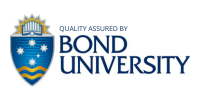
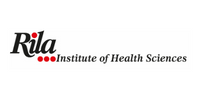
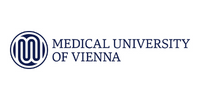
Don't see your question? Explore other faqs or talk to us.
Fees will vary based on the program and study option selected (fully online vs online + optional practical workshop). Payments can be made upfront or in monthly instalments. Special rates and various payment options are available. GP registrars and doctors in training enjoy a scholarship of up to $500. Talk to us to learn more.
Completion of any HealthCert course or attendance at an event will enable you to access the HealthCert Alumni Program which includes:
HealthCert Education is pleased to issue digital credentials for alumni. Digital credentials are a permanent online record of your successful completion of a HealthCert course and are issued to all course participants in addition to PDF certificates. If you are based in Australia, you also have the option to order a hard copy of your digital certificate for a small additional fee.
The recommended study duration of this certificate course is 81.5 hours, which includes study of the pre-course activities and readings, online lectures, live tutorials, and online assessment. This self-paced course offers the flexibility of 100% online study in your own time, at your own pace, in your own home or office, with no mandatory face-to-face requirements. You are not required to be online at specific times but can view and replay video lectures at your convenience.
All HealthCert courses meet World Federation of Medical Education standards. This certificate course qualifies for CPD hours from the Royal Australian College of General Practitioners (RACGP) and the Australian College of Rural and Remote Medicine (ACRRM) in Australia. It is recognised by the Royal New Zealand College of General Practitioners (RNZCGP) in New Zealand. It is recognised by the Hong Kong College of Family Physicians (HKCFP) in China. It is a self-submitted activity in Dubai and the United Kingdom. It is a self-submitted activity through the College of Family Physicians in Canada. If you live or work outside one of the above-mentioned countries, please contact us on admin@healthcert.com to discuss whether this course can be recognised in your country.
Want to stay up-to-date with the latest case studies, podcasts, free video tutorials and medical research articles pertinent to primary care?
Our Education Advisors can assist you with any queries and tailor our education pathway to suit your current expertise, interests and career goals.